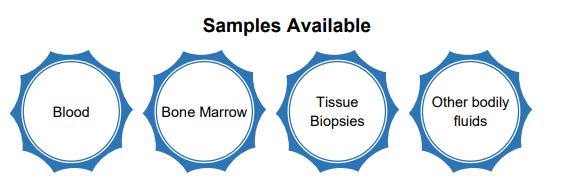Immuno-oncology Immunophenotyping Service
Precision Immune Profiling for Breakthrough Cancer Insights
At Creative Biolabs, we offer comprehensive Immuno-oncology Cell Assay Services including immuno-oncology immunophenotyping services, which are designed to provide a detailed characterization of the immune cells within the tumor microenvironment. By leveraging advanced technologies and expert analysis, we help researchers unravel the complexities of tumor-immune interactions, paving the way for the development of more effective cancer immunotherapies.
Our Flow Cytometry-based Immunophenotyping Services
-
Immune Cell Subset Characterization:
-
Multicolor flow cytometry: Characterize various immune cell subsets (such as B cells, T cells, natural killer cells, dendritic cells, and myeloid-derived suppressor cells). Custom panels are developed to meet specific research needs for detailed immune cell profiling.
-
Functional Analysis:
-
Cell activation and functional analysis: Assess immune cell activation and functionality, including cell proliferation, cytokine secretion, and cytotoxic activity. This involves measuring surface and intracellular activation markers to evaluate cellular functions.
-
Apoptosis and viability analysis: Detect cell apoptosis and viability using flow cytometry. Analyze cell death and survival rates under different treatment conditions to assess therapeutic effects.
-
Immune Modulation and Interaction:
-
Immune checkpoint molecule (PD-1, PD-L1, and CTLA-4) detection: Analyze the expression of immune checkpoint molecules, which helps evaluate tumor immune evasion mechanisms and guide immunotherapy strategies.
-
Tumor-infiltrating lymphocyte (TIL) analysis: Assess immune cell composition and functionality within the tumor microenvironment by analyzing tumor-infiltrating lymphocytes. This is crucial for understanding tumor immune responses and developing new immunotherapies.
-
Cell Cycle and Antigen Expression:
-
Cell cycle analysis: Evaluate cell cycle distribution using flow cytometry to understand cell proliferation and division. This is important for studying tumor cell proliferation and the mechanisms of anti-cancer drugs.
-
Surface and intracellular antigen expression analysis: Detect surface and intracellular antigen expression using flow cytometry. This helps identify and isolate specific immune cell subsets.

Advantages
-
Identify potential targets for immunotherapy by analyzing immune cell populations and their functional states, and optimize treatment strategies.
-
Discover and validate immune-related biomarkers.
-
Understand the immune landscape within the tumor microenvironment to develop strategies for modulating immune responses.
-
Providing tailored services to meet specific research needs and objectives, ensuring optimal relevance and impact of the data.
FAQs
1. What is immunophenotyping?
Immunophenotyping is a technique used to analyze and identify the types and characteristics of cells in a sample based on the expression of specific surface or intracellular markers. This is typically conducted using flow cytometry or other similar methods.
2. How is flow cytometry used in immunophenotyping?
Cells are labeled with fluorescent antibodies specific to markers of interest, and as they pass through a laser, the emitted fluorescence is measured to determine the presence and quantity of each marker.
3. What types of samples can be used for immunophenotyping?
Immunophenotyping can be performed on a variety of sample types, including blood, bone marrow, tissue biopsies, and other bodily fluids.
4. What kind of markers can be analyzed in immunophenotyping?
A wide range of markers can be analyzed, including those specific to various immune cell subsets (e.g., T cells, B cells, NK cells), activation and differentiation markers, checkpoint molecules, and intracellular cytokines or signaling proteins.
At Creative Biolabs, we are committed to advancing the field of immuno-oncology through our comprehensive Immunophenotyping Services. If you are interested in gaining deeper insights into the immune landscape of tumors or have specific research needs, please contact us today.
For Research Use Only | Not For Clinical Use



 Download our brochure
Download our brochure